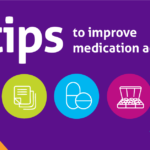Empowering Your Health Journey with Medication
In our journey towards optimal health and well-being, medicine plays a pivotal role in empowering individuals to take control of their health destinies. From managing chronic conditions to alleviating acute symptoms, medications serve as potent tools in the arsenal of modern medicine. At the intersection of science and patient care, medicine empowers individuals to reclaim agency over their health journeys, enabling them to live life to the fullest.

Understanding the Power of Medication
Medication represents a cornerstone of modern healthcare, offering solutions to a myriad of health challenges. Whether it’s controlling blood pressure, regulating blood sugar levels, or treating infections, medicine provide tangible relief and improve quality of life. By targeting specific physiological pathways, medicine address underlying issues, offering symptomatic relief and promoting healing from within.
Personalized Treatment Approaches
In today’s era of precision medicine, the approach to medication is increasingly personalized. Healthcare providers leverage advanced diagnostic tools and genetic insights to tailor treatment regimens to individual needs. Through personalized medicine, patients receive medications that are optimized for their unique genetic makeup and health profile, maximizing efficacy and minimizing adverse effects.
Adherence and Empowerment
Central to the success of any medicine regimen is adherence. Empowering individuals to adhere to their prescribed medications is key to achieving positive health outcomes. Education, support, and empowerment are vital components in fostering adherence. By equipping patients with knowledge about their medicine and fostering a sense of ownership over their health, healthcare providers empower individuals to take charge of their treatment plans.
Integrative Approaches to Health
While medicine play a crucial role in managing various health conditions, they are often just one piece of the puzzle. Integrative approaches to health encompass a holistic view of wellness, encompassing lifestyle modifications, nutrition, exercise, stress management, and complementary therapies. By integrating medication with holistic practices, individuals can achieve synergistic effects, enhancing overall well-being and resilience.
The Role of Patient Education
Effective communication and patient education are paramount in the realm of medication management. Healthcare providers must empower patients with comprehensive information about their medicine , including dosage, administration, potential side effects, and interactions. By fostering open dialogue and addressing patient concerns, healthcare professionals empower individuals to make informed decisions about their health.
Harnessing Technology for Empowerment
In the digital age, technology plays a pivotal role in empowering individuals to manage their health effectively. From medication reminders to telemedicine consultations, technological innovations facilitate adherence and engagement. Mobile apps, wearable devices, and online platforms provide valuable tools for tracking medications, monitoring health metrics, and accessing educational resources.
Overcoming Barriers to Access
Despite the transformative power of medications, access barriers remain a significant challenge for many individuals. Economic disparities, lack of insurance coverage, and logistical hurdles can hinder access to essential medications. Addressing these disparities requires a multifaceted approach, encompassing policy reforms, community outreach, and advocacy efforts to ensure equitable access to medications for all individuals.
Empowering Through Advocacy and Support
Beyond the realm of individual health management, advocacy and support are essential in empowering communities to access medications and healthcare services. Advocacy organizations, patient support groups, and grassroots initiatives play a vital role in raising awareness, promoting policy change, and providing assistance to those in need. By amplifying the voices of patients and caregivers, advocacy efforts drive positive change and empower individuals to overcome health challenges.

Introduction: In the journey toward better health, medicine plays a crucial role in managing and treating various conditions. However, the true power lies not just in the medicine itself, but in how we empower ourselves to take control of our health journey. This guide aims to explore the ways in which we can harness the potential of medication to enhance our well-being and lead fulfilling lives.
Understanding Medication: Medicine comes in various forms, from pills to injections, each designed to target specific ailments or symptoms. It’s essential to understand how medicine works, including its intended effects, possible side effects, and interactions with other drugs or substances. Consulting healthcare professionals, such as doctors and pharmacists, can provide valuable insights into the medications prescribed and how best to use them.
Building a Partnership with Healthcare Providers: Effective communication and collaboration with healthcare providers are vital for optimizing medicine use. Establishing a partnership based on trust and mutual respect allows for open discussions about treatment goals, concerns, and preferences. Healthcare providers can offer guidance on medicine adherence, adjustments, and alternatives, ensuring that the chosen treatment aligns with individual needs and preferences.
Empowering Self-Management: Taking control of one’s health journey involves actively participating in self-management practices. This includes adhering to medicine schedules, monitoring symptoms, and making lifestyle adjustments to support overall well-being. Developing self-care routines, such as exercise, proper nutrition, and stress management, can complement medicine therapy and enhance its effectiveness.
Educating Yourself: Knowledge is empowering when it comes to medicine management. Educating yourself about your health condition, treatment options, and potential side effects enables informed decision-making and promotes autonomy in healthcare choices. Utilize reputable sources of information, such as trusted healthcare websites, patient advocacy organizations, and educational materials provided by healthcare providers.
Navigating Challenges: Despite the benefits of medicine , challenges may arise along the health journey. These may include financial constraints, accessibility issues, or difficulties with medicine side effects. It’s essential to address these challenges proactively, seeking support from healthcare professionals, support groups, or social services when needed. Open communication and problem-solving strategies can help overcome barriers to medication adherence and overall health management.
Fostering Resilience: Resilience is the ability to adapt and bounce back from setbacks, and it’s a valuable asset in managing health challenges. Embracing a positive mindset, cultivating social support networks, and practicing self-compassion can foster resilience in the face of adversity. Recognize that setbacks are a natural part of the health journey and focus on small victories and progress along the way.
FAQ (Frequently Asked Questions)
- What is medicine empowerment? Medicine empowerment refers to the process of taking an active role in managing one’s health through the responsible use of medicine . It involves understanding medications, collaborating with healthcare providers, and engaging in self-management practices to optimize treatment outcomes.
- How can I empower myself when it comes to medicine management? You can empower yourself by educating yourself about your health condition and medicine , building a partnership with your healthcare providers, adhering to medication schedules, and making lifestyle changes to support overall well-being.
- What should I discuss with my healthcare provider about my medicine ? It’s important to discuss the purpose of the medication, its potential side effects, interactions with other drugs or substances, and any concerns or preferences you may have. Additionally, inquire about alternative treatment options and strategies for monitoring and managing your condition.
- How can I stay motivated to adhere to my medicine regimen? Staying motivated involves setting realistic goals, establishing a routine for medicine administration, utilizing reminders such as alarms or pill organizers, and tracking your progress. Engaging in self-care activities, seeking support from loved ones, and celebrating small successes can also help maintain motivation.
- What should I do if I experience side effects from my medication? If you experience side effects, notify your healthcare provider immediately. They can assess the severity of the side effects and recommend adjustments to your medication regimen, such as dose adjustments or switching to an alternative medication. Do not discontinue medication without consulting your healthcare provider.
- How can I overcome barriers to medication adherence, such as cost or accessibility? If cost or accessibility is a barrier, discuss your concerns with your healthcare provider or pharmacist. They can provide information about affordable medication options, assistance programs, or generic alternatives. Additionally, explore community resources and support services that may offer financial assistance or transportation assistance.
- What role does self-care play in medication empowerment? Self-care complements medication therapy by promoting overall well-being and managing underlying health conditions. Engaging in activities such as exercise, healthy eating, stress management, and adequate sleep can enhance the effectiveness of medication and contribute to better health outcomes.
- How can I find reliable information about my health condition and medications? Look for reputable sources of information, such as government health websites, professional medical associations, and peer-reviewed journals. Your healthcare provider can also provide trustworthy information and answer any questions you may have about your health condition and treatment options.
- What should I do if I forget to take my medication? If you forget to take your medication, take it as soon as you remember unless it’s close to the time for your next dose. In that case, skip the missed dose and resume your regular dosing schedule. Avoid doubling up on doses unless advised by your healthcare provider.
- How can I build resilience in managing my health challenges? Building resilience involves cultivating a positive mindset, seeking social support, practicing self-care, and learning from setbacks. Focus on your strengths, celebrate progress, and remind yourself that managing health challenges is a journey that requires patience, perseverance, and self-compassion.


